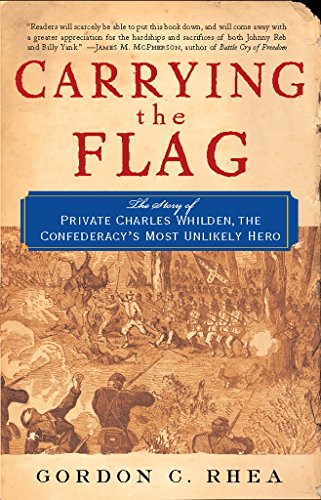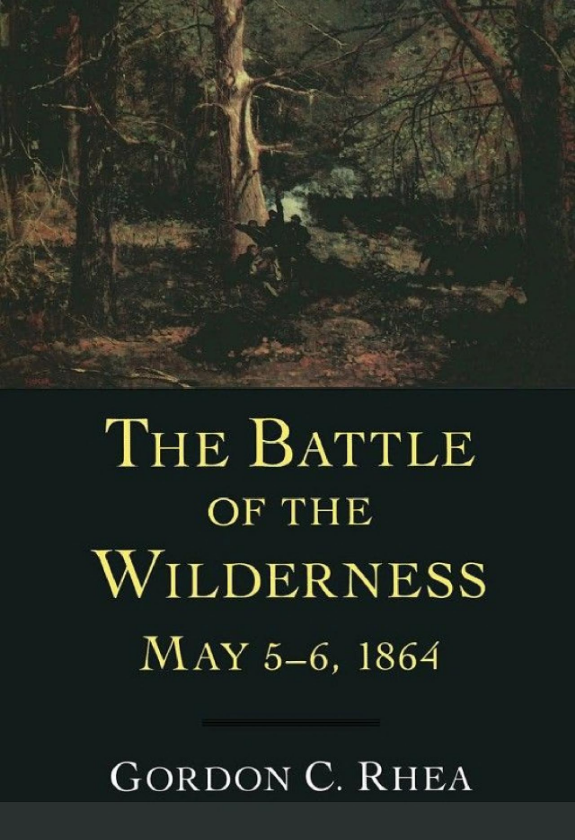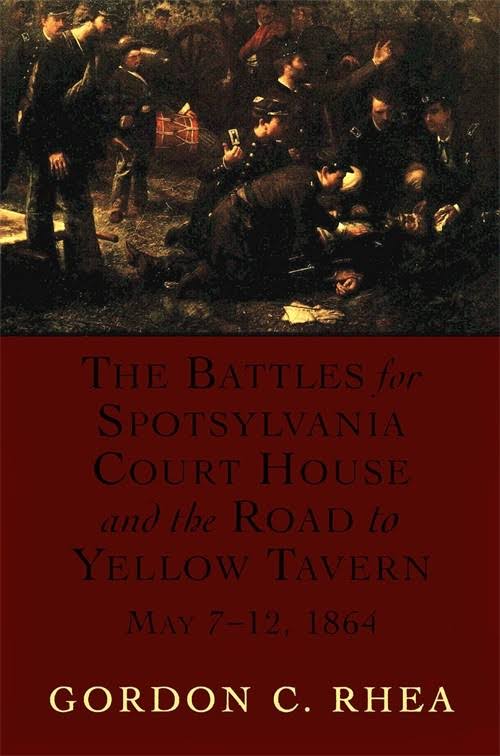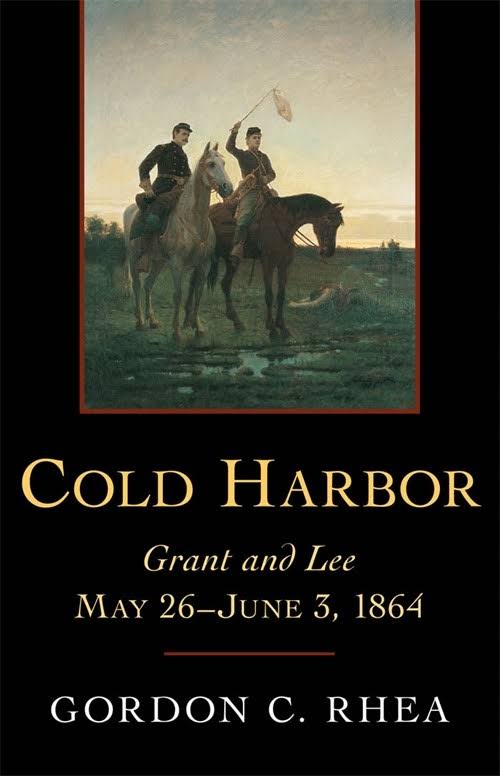Carrying the Flag: The Story of Private Charles Whilden, the Confederacy's Most Unlikely Hero

Description
For forty years, Charles Whilden lived a life most noteworthy for a series of near misses. Repeatedly turned down for service in the Confederate Army, he did not enlist until the desperate days when anyone capable of locomotion was brought in to fill the ranks. He was subsequently plunged into the very regiment destined to see the worst of Grant's brutal spring 1864 campaign. But Whilden would go on to discover a courage within that was prefigured by none of his earlier failures.
Source: Google BooksCritical Acclaim
The battle of Spotsylvania Court House was the Civil War's ghastliest, a day-long, rain-sodden struggle for control of a Confederate trench line so brutal that the dead were "pulverized into mush that resembled jelly instead of men." Rhea (The Battle of the Wilderness) finds heroism in this hellish setting in the guise of Charles Whilden, a sickly, 39-year-old regimental flag-bearer, repeatedly rejected for service but finally inducted by a Confederate army desperately short of men, who briefly rallied the Southerners and helped save the day for Lee's army. Rhea styles this tale of an insignificant man rising to the occasion a celebration of the "capacity of the human spirit to shine," but there's little uplift to be gleaned from the story. A feckless ne'er-do-well who died a year after the war when he suffered an epileptic fit and drowned face down in a mud puddle, Whilden could be, with a very slight shift in perspective, an absurdist anti-hero whose moment of glory merely prolonged the death throes of a futile cause. Fortunately, Rhea uses his life mostly as a peg on which to hang an otherwise absorbing account of Spotsylvania and the preceding battle of the Wilderness. His well-paced and vividly detailed narrative moves easily from lucid considerations of Grant and Lee's grand strategies to the common soldiers' view of the chaos and squalor of the fighting, and includes engaging background material on camp life, the social background of Confederate soldiers and race relations in the ante-bellum South. The result is an evocative retelling of a Civil War epic.
Source: Publishers Weekly


